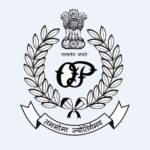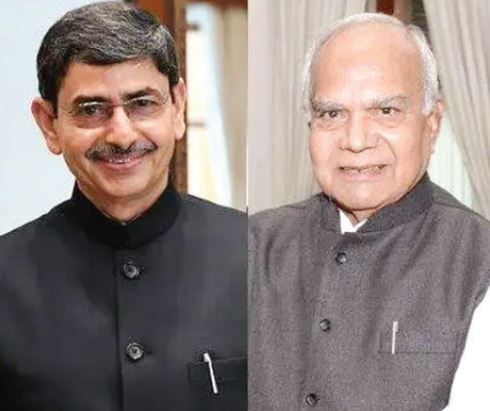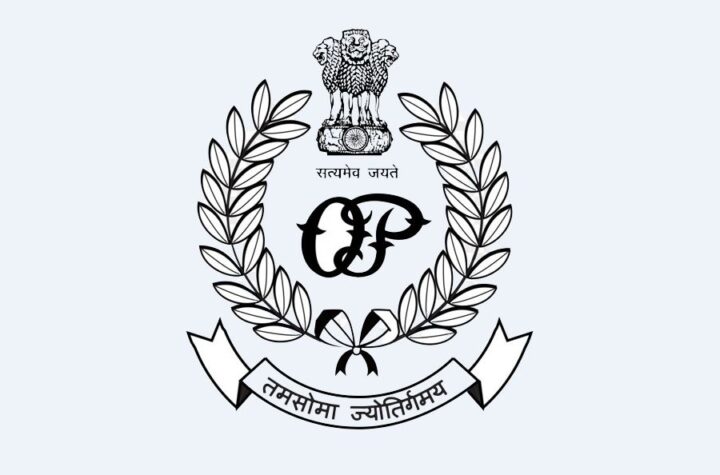New Delhi: The Supreme Court today came down hard on both Punjab and Tamil Nadu governors after the state governments accused them of delaying action on bills cleared by the assemblies. The bench, led by Chief Justice of India DY Chandrachud, urged both the governors to not delay the bills that have been cleared by the elected assembly. “Please don’t deflect the course of bills passed by a duly elected assembly. It’s a matter of very serious concern,” the Chief Justice said. “You’re playing with fire. How can the governor say this? We are not happy with what is happening in Punjab. Will we continue to be a parliamentary democracy?” the bench added while emphasising that India has been running on established traditions and conventions and they need to be followed. The Punjab government had earlier moved the Supreme Court alleging delay in Governor Banwarilal Purohit’s giving assent to bills passed by the state assembly. The plea said such “unconstitutional inaction” has brought the entire administration to a “grinding halt.” Senior advocate Abhishek Singhvi, arguing for the Punjab government, had said the governor had kept back seven bills including those related to fiscal management and education. He said the bills were sent for the governor’s nod in July and his inaction has affected governance. The court has directed Solicitor General Tushar Mehta to place on record the details of action taken by Punjab Governor Banwarilal Purohit on the bills passed by the assembly. The Punjab governor is involved in a long-running feud with the Aam Aadmi Party government led by Chief Minister Bhagwant Mann. The Tamil Nadu government had also urged the Supreme Court to intervene alleging that the Governor was “undermining the will of people” by intentionally delaying the bills sent to him for clearance. The DMK government and Tamil Nadu governor have been at loggerheads for the past few months. Chief Minister MK Stalin and Centre-appointed Governor Ravi have earlier clashed on pending bills, Mr Stalin’s foreign trips, the Dravidian model of governance, and the latter’s remarks on the state’s name. Similarly, terming as a “matter of serious concern” the alleged delay by Tamil Nadu Governor R N Ravi in giving assent to bills passed by the assembly, the Supreme Court on Friday sought the Centre’s response on the state government’s petition accusing the Raj Bhawan of “sitting over” 12 legislations. A bench of Chief Justice D Y Chandrachud and Justices J B Pardiwala and Manoj Misra issued notice to the Centre and sought the assistance of the attorney general or solicitor general in resolving the issue. “The issues which have been raised in the Writ Petition, raise a matter of serious concern. From the tabulated statements that have been submitted before this court, it appears that as many as 12 Bills that have been submitted to the Governor under Article 200 have not elicited any further action. Other matters such as proposals for the grant of sanction for prosecution; proposals for the premature release of prisoners; and for the appointment of the members of the Public Service Commission are pending,” it said. The bench said, “Bearing in mind the situation, we issue notice to the second respondent, namely, the Union of India represented by the Secretary to the Government in the Ministry of Home Affairs. We request the Attorney General for India or, in his absence, the Solicitor General of India to assist the Court.” The bench posted the matter for further hearing on November 20. Senior advocate Abhishek Singhvi, appearing for the Tamil Nadu government, said 12 bills passed by the assembly were pending with the office of Governor R N Ravi. He said the bills passed by the assembly between 2020 and 2023 are pending ratification by the governor though they were submitted for his assent between January 13, 2020 and April 28, 2023. Singhvi said the second category of cases pending with the Raj Bhawan consisted of four files that were submitted between April 10, 2022 and May 15, 2023 for according sanction for prosecution of various crimes involving alleged acts of moral turpitude on the part of public servants under the Prevention of Corruption Act, 1988. “He is just sitting over everything and not taking any decision,” the senior lawyer claimed, adding 54 files pertaining to premature release of prisoners submitted to the governor were also pending. Senior advocate P Wilson, also representing the state government, said proposals submitted to the governor for appointment of members to the Tamil Nadu Public Service Commission (TNPSC) under Article 316 of the Constitution too are lying with him. He said the TNPSC is currently functioning with just four members instead of 14 resulting in “dislocation” of the public service commission. The bench said, Article 200 of the Constitution mandates that when a bill has been passed by the legislative assembly of a state or where a state has a bicameral legislature, by both the Houses, it shall be presented to the Governor, who shall declare (I) assents to the bill; or (ii) withholds assent therefrom; or (iii) reserves the Bill for the consideration of the President. “The proviso to Article 200 stipulates that the Governor may “as soon as possible” after the presentation of the Bill for assent, return the Bill, if it is not a Money Bill, together with a message requesting that the House or Houses may reconsider the Bill or any specific provisions. If the Bill is passed again by the House or Houses, the Governor, it is provided, shall not withhold it,” the bench noted in its order. The Tamil Nadu government has in its petition urged the top court to intervene, alleging that “a constitutional authority” was consistently acting in an “unconstitutional manner impeding and obstructing” the functioning of the state government for “extraneous reasons”. “Declare that the inaction, omission, delay and failure to comply with the constitutional mandate by the Governor of Tamil Nadu/first Respondent qua the consideration and assent of the Bills passed and forwarded by the Tamil Nadu State Legislature to him and the non-consideration of files, Government orders and policies forwarded by the State Government for his signature is unconstitutional, illegal, arbitrary, unreasonable besides malafide exercise of power,” the petition says.
Exclusive
Breaking News
 LS elections: 4th phase polling records 63 pc turnout
LS elections: 4th phase polling records 63 pc turnout
 ‘Still poor country’: India going to become third largest economy in world
‘Still poor country’: India going to become third largest economy in world
 Viksit Bharat, Viksit Odisha: PM Appeals to State People to Vote for BJP
Viksit Bharat, Viksit Odisha: PM Appeals to State People to Vote for BJP
 Odisha Crime Branch arrests 3 Directors of 2 Fintech companies for Cyber Fraud
Odisha Crime Branch arrests 3 Directors of 2 Fintech companies for Cyber Fraud
 AstraZeneca withdraws Covid-19 vaccine globally, months after admitting rare side effects
AstraZeneca withdraws Covid-19 vaccine globally, months after admitting rare side effects






More Stories
LS elections: 4th phase polling records 63 pc turnout
‘Still poor country’: India going to become third largest economy in world
Viksit Bharat, Viksit Odisha: PM Appeals to State People to Vote for BJP